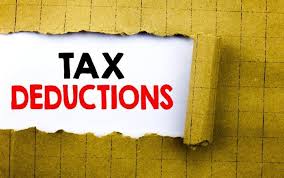In real estate, buying and selling a property involves financial intricacies. As a broker, you must know about real estate taxes to handle different property deals.
Besides, there are many taxes involved in property and real estate dealings. You can deal seamlessly with homebuyers and investors if you know deductions and exceptions.
Also, the real estate tax system is complex, and you must stay in the loop with changing slabs. Let’s look at some essential tax considerations to stay well-prepared for compliant transactions in real estate deals.
Property Tax

Property tax is a vital tax a homeowner must pay to a municipal corporation. For instance, if you own a flat in Mumbai, you must pay property tax to BMC or the Municipal Corporation of Mumbai.
However, the local municipal government collects property tax from homeowners who spend it on the city infrastructure. All the spending towards repairing drainage, building parks, bridges, etc., comes from these funds.
In addition, these taxes are accessed based on several factors like size, property, and current value. The best property tax provision is that you can pay it online without any issue.
TDS on Property Sale

TDS is not only applicable to a salary. Tax deduction at source is also applicable – at the sale of property. It’s an essential consideration in the real estate tax system.
The property buyer has to deduct one percent of stamp duty or sale proceeds over fifty lacs. At the time of the sale deal, the property buyer must deposit the TDS amount, which has to be verified by the seller.
However, the amount can be adjusted later against the final tax liability. The final TDS amount depends on the property value and sale deed. As a broker, you must know about TDS on property sales.
Tax Deductions on Loans

Do you know about tax deductions on home loans? It’s a vital aspect of taxes and deductions in real estate. By understanding these deductions – you can plan your financial outflow and balance your monthly budget.
Also, repaying the home loan will make you eligible for two different income tax deduction sections. Section 80C allows you to claim an annual deduction of up to 1.5 lakhs towards the principal amount of the home.
However, you can avail yourself of this as a buyer if you do not sell your property for five years after possession. Also, under the provision, you can claim an added tax deduction of two lacs per year, as this can be toward the home loan interest repayment. All these tax provisions further encourage people to buy properties.
Capital Gains on Property Sale:
A seller must pay capital gain tax if he plans to sell a property. Capital gain tax is on the profit earned after considering index acquisition cost and inflation. There are two main types of capital gains:
Short-term capital gains
The profit earned from selling the property is a short-term capital gain if the homeowner holds a property for less than twenty-four months or two years.
Here, the sale value is the amount received by the property owner. The capital is added to the income and income tax slab. In addition, the acquisition cost is the price of the property that the seller has to pay while purchasing the property from the buyer.
The other expenses include the brokerage price, legal formalities, and other costs. Also, asset improvement cost is the improvement cost related to the property. However, there may be other expenses related to fees and property.
Long-term capital gains
If the property is held for more than twenty-four months or two years, the profit earned from selling that property is treated as long-term capital gain.
Long-term capital gain is taxed at twenty percent with indexation benefits. Some factors that affect the tax calculation are – indexed cost of acquisition, consideration, indexed cost of improvement, tax exceptions, and other expenses during transfer or sale.
Short-term capital gains and long-term capital gains are divergent. The way these taxes are calculated affects taxes. However, the tax rates are applicable depending on the amount.
Property Types
The Indian government has classified four main types of property: land, personal property, intangible property, and improvements made to the land – for calculating the property tax. The land is the core land without any construction and is often taken into account for property tax.
Personal property is related to man-made objects such as buses and cars. Intangible property mainly includes properties without physical substance, including copyrights and patents.
Land improvements mean different construction types, i.e., if any construction is made to the property. The property tax calculation considers different factors regarding these property types.
Professional help with taxes
Tax calculations and tax norms in real estate can confuse a home buyer, seller, and real estate broker. It is essential to seek professional help to understand the system and calculations.
If you know the basics of property tax calculations, you don’t require professional help. But if you have no idea – how the system works, seeking professional help will enlighten you on – how things work with property tax.
It’s a good idea to seek guidance from a financial advisor specializing in real estate property tax. Also, Financial experts can help you understand tax liability depending on real estate law. With that, they can help you utilize the benefits of exemptions.
Getting professional help can help you manage your finances better. As a broker, you must focus on this aspect of business. After all, taxes are an essential part of financial planning.
Do you know about different tax slabs? In the real estate business, you must focus on property tax and slabs. Lastly, you are better prepared if you know about financial aspects and Property taxes.
